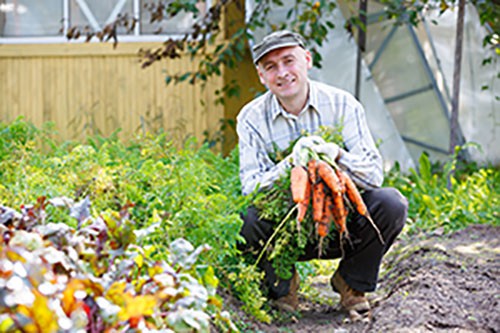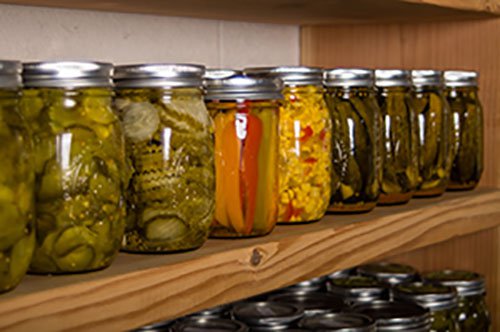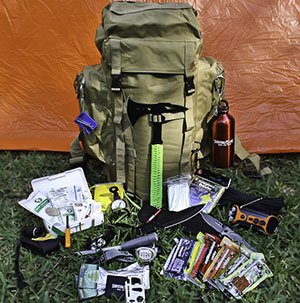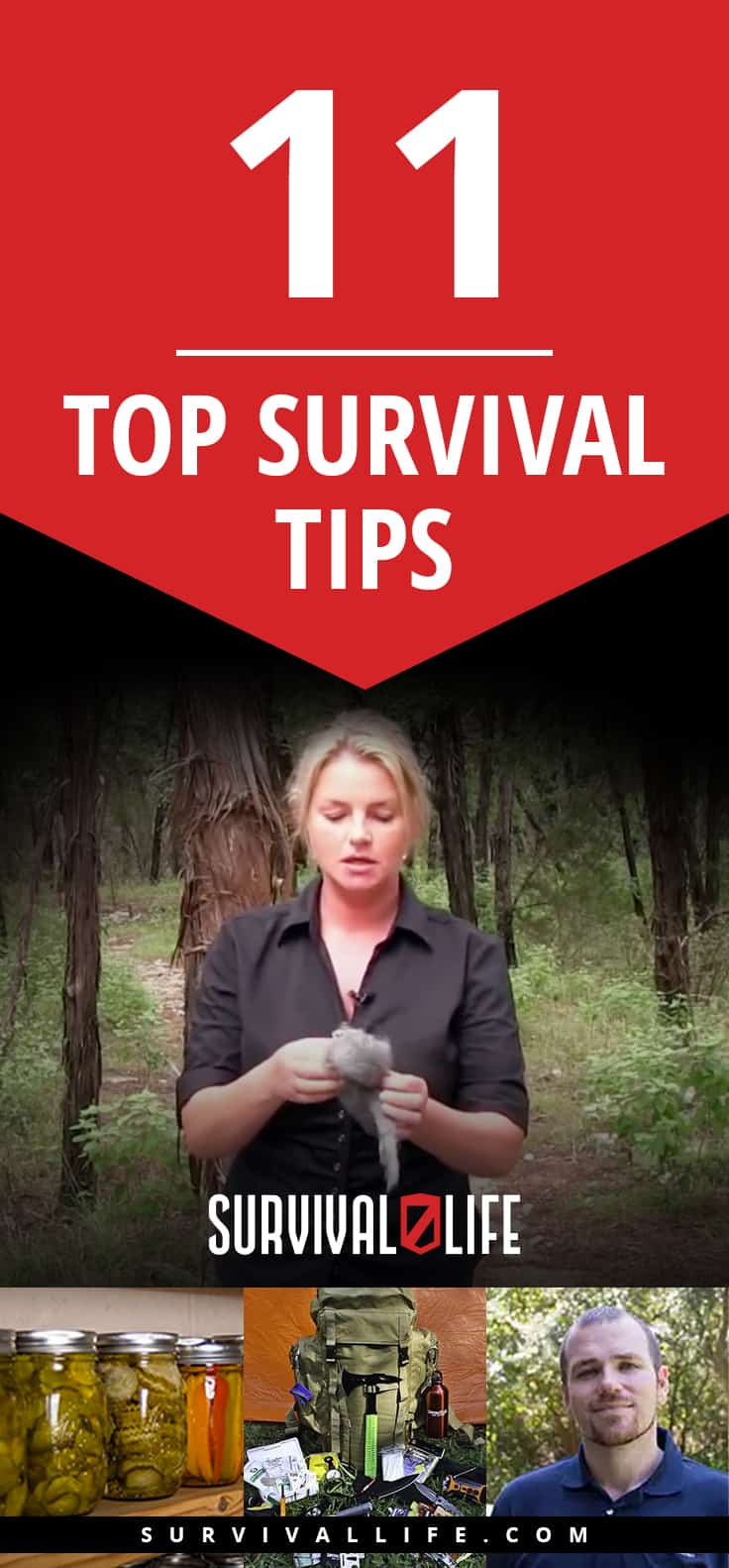11 Top Survival Tips
When it comes to surviving in a disaster situation, you can never be too prepared for when the shtf. Whether it’s a war, a natural disaster that causes the power grid to go down, or a complete collapse of government and society, you need to know what to do and have the tools to do it. You need to be prepared both mentally and physically. That’s easier said than done, of course.
True preparedness takes skills and expertise that are built up over time and through experience. However, there are a few basic rules that should be followed by anyone facing an emergency situation….
Here are our 11 top survival tips essential for preppers:

1. Have A Plan: Disaster can strike at any time. You never know when you may have to go off the grid, defend your home from enemies, or take action in another sort of emergency. When the time comes, you won’t have time to think, you will need to take action. So it’s best to have a plan in place beforehand. Work with your family and neighbors to come up with a plan of action, and make sure everyone knows what to do. When disaster strikes, this will save you precious time and might just save your life.
2. Know How To Start A Fire: We use the term lifesaving a lot in survival and preparedness, and truth be told, all of the things we talk about can possibly save your life. Fire however is the ultimate survival tool. You can use it as a very basic form of shelter by keeping you warm and avoiding hypothermia. It will sanitize your water for you making it safe to drink, It will keep predators (and other creepy crawlies) away and allowing you some much needed rest. Fire is so important that it may well be the first skill you should learn at all. But don’t stop at knowing how to make a fire one way, make sure that you know at least three! The more you know the better! Here’s our friend Ruth Hawk starting a fire without matches:
3. Know How to Grow Your Own Food: When disaster strikes, you may no longer be able to make a quick trip to the grocery store for food. Supplies may run out, or it may just be too dangerous. Those who know how to fend for themselves will be the survive and thrive when SHTF. Start learning how to grow your own food. Learn which plants grow well in your area and how to care for them. Make sure you have plenty of space for a garden and a plan for irrigation. Knowing how to grow your own food will literally be the difference between life and death.
4. Know How to Barter: When civilization collapses, you can be sure that the collapse of the monetary system will not be far behind. If and when this happens, your stack of cash hidden in the mattress will be all but worthless, and you will have to figure out what other items can be used as bartering chips. Much needed items like food, medicine, and clothing will be in high demand, so you may want to keep extra stores of these items on hand to use when trading.
5. Know How to Store Your Food: If you and your family are going to survive more than a couple of days, you will need plenty of non-perishable food. You will also need a place to keep it so that your food will be protected from theft and the elements. Learning how to can food is essential and will make your food stores last much longer. Other great airtight food containers include pill bottles, Mylar storage bags, and flip tight canisters. Remember to keep food in a cool, dark place and to carefully label all of your food containers with the date and the name of the item.  6. Stay Healthy: Illness is never a good thing, but in a disaster situation, even a minor illness can become deadly if food and medicine are scarce. At the very least, getting sick will make you temporarily weak, and you never want to be in a vulnerable state. Stay healthy by eating nutritious foods, staying active, and maintaining a sanitary living space. If you or someone in your party does contract an illness, isolate the sick individual and do all you can to prevent the disease from spreading. In addition to fighting off disease, keep your body and immune system in shape by getting plenty of exercise and sleep. This will keep both your body and your mind sharp.
6. Stay Healthy: Illness is never a good thing, but in a disaster situation, even a minor illness can become deadly if food and medicine are scarce. At the very least, getting sick will make you temporarily weak, and you never want to be in a vulnerable state. Stay healthy by eating nutritious foods, staying active, and maintaining a sanitary living space. If you or someone in your party does contract an illness, isolate the sick individual and do all you can to prevent the disease from spreading. In addition to fighting off disease, keep your body and immune system in shape by getting plenty of exercise and sleep. This will keep both your body and your mind sharp.
7. Learn About Home Remedies: If you or someone in your group does fall ill or get injured, it is important to know what you can do to treat it, especially in a situation where medicine may not be readily available. Study up on home remedies for common ailments, and keep a well-stocked first aid kit with items like gauze, bandages, peroxide and antibiotic ointment. Read up on medicinal plants and learn to identify them and what they can be used to treat. Be ready to fill the role of doctor, nurse or surgeon if the need should arise.
8. Keep Your Home Secure: In some disaster situations, it may make sense to stay where you are and just take extra measures to make sure your home is safe. Work with your neighbors to develop a plan, and a start a neighborhood watch to protect yourselves from looters and criminals. Install a security system and never leave your home unattended without letting a neighbor know that you will be gone. Establish a plan with your family for what to do if an intruder does enter your home.
9. Have a Bug-Out Bag: Have a bug-out bag ready in case of an emergency that requires immediate evacuation. Keep your bug-out bag fully stocked at all times with essential items like tools, flashlights, cash, a compass, a tent, and extra clothes. Be smart – pack your bag tightly with as many important items as possible, but make sure it is light enough to pick up quickly and carry. Keep your bug-out bag in an easily accessible place so that you can grab it quickly. Here’s what I have in my bag: 
10. Have An Emergency Fund: Like we discussed earlier, the economy is likely to collapse in an emergency situation, rendering paper currency useless. Gold and silver are much more secure and will be much more valuable than fiat currency in a post-disaster society. Invest in gold and silver, and keep your stores somewhere where they are secure and easy for you to get to.
11. Prepare for Bad Weather: Many survivalists think they are prepared for almost anything. They’ve prepped for pandemics, riots, civil breakdown, terrorism. They get so caught up in the big buzzwords that they fail to prepare for the little things, like weather. Weather and other natural events can quickly ruin all of your survival plans. If your plan was to bug in and suddenly you find yourself without a house, you better be ready to adapt quickly! In a situation where you may have to go without shelter for a while, it is vital to have appropriate clothes and supplies for a variety of weather situations. Make sure you are prepared for heat, cold, rain, wind, and extreme weather events like tornadoes or hurricanes (depending on your location). It is also helpful to learn how to predict the weather ahead of time, and there are several tools and techniques you can use to do this.
A real survivalist never stops learning and improving his (or her) skills. These eleven survival tips cover the very basics of what you need to know to handle just about any disaster. Remember that everything you learn should be shared with your family and core group of like-minded friends. There is strength and numbers, and it will help to have other people around who know what to do in an emergency situation.
The most important survival tool you have is your mind. Keep it sharp. Learn to use these survival tips, and you will be much better off.
Remember, We’re all in this together!



Pingback: VIDEO: One Survival Tip That Could Save Your Life
Pingback: Top Survival Tips Everyone Should Know – SurvivalistToday.com